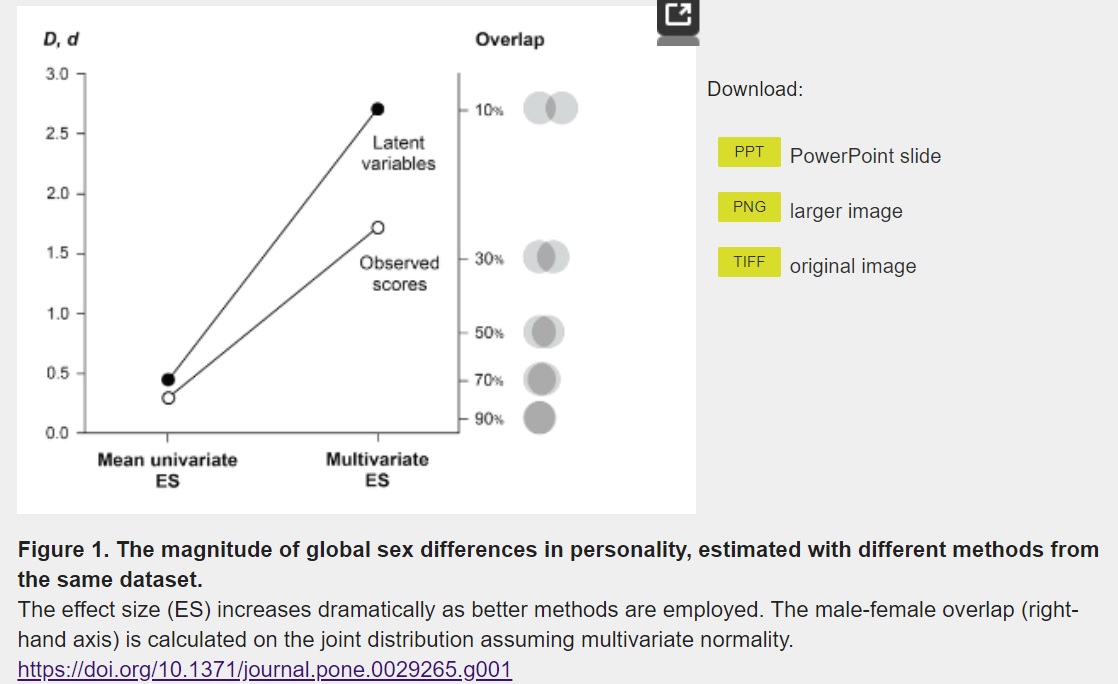
I started collecting the studies of sex differences in the summer of 2017 during the Damore-Google debacle. Over two years later I have over 70 pages of links and abstracts of such studies, both sociological and biological, ranging from moderately-strong studies to powerful meta-studies. Such knowledge is desperately needed in this day and age of rank gaslighting on the issues of sex differences, even within the church, yes, conservative churches.
Differences, of course, are not absolute and vary among individuals. But in sufficiently large group settings or in the right circumstances they can and do make a difference.
The study, The Distance Between Mars and Venus: Measuring Global Sex Differences in Personality, summarizes their findings thusly:
“These effect sizes firmly place personality in the same category of other psychological constructs showing large, robust sex differences, such as aggression and vocational interests…The idea that, on average, there are only minor differences between the personality profiles of males and females should be rejected as based on an inadequate methodology.”
They offer a counter-argument to those who pooh-pooh self-reported gender differences:
First, meta-analytic evidence shows that sex differences in aggression (a highly sex-typed behavior) are very similar when assessed by observation and self-reports, and even stronger when measured by peer-reports [70]. Second, self-reports will actually deflate sex differences if people tend to rate their own personality in relation to members of their own sex instead of “people in general” [11], [71]. Indeed, if people used the mean of their own sex as a reference point, any absolute mean difference between the sexes would simply disappear from self-reported scores. Thus, more gender-stereotypical attitudes can actually lead to smaller sex differences in self-reported personality; this paradoxical effect is a likely explanation of the fact that sex differences in self-reported personality and interests are larger in more gender-egalitarian cultures
They urge future studies to employ this better methodology for the betterment of all:
Of course, the methodological guidelines presented in this paper can and should be applied to domains of individual differences other than personality, including vocational interests, cognitive abilities, creativity, and so forth. Moreover, the pattern of global sex differences in these domains may help elucidate the meaning and generality of the broad dimension of individual differences known as “masculinity-femininity” [11]. In this way, it will be possible to build a solid foundation for the scientific study of psychological sex differences and their biological and cultural origins.





